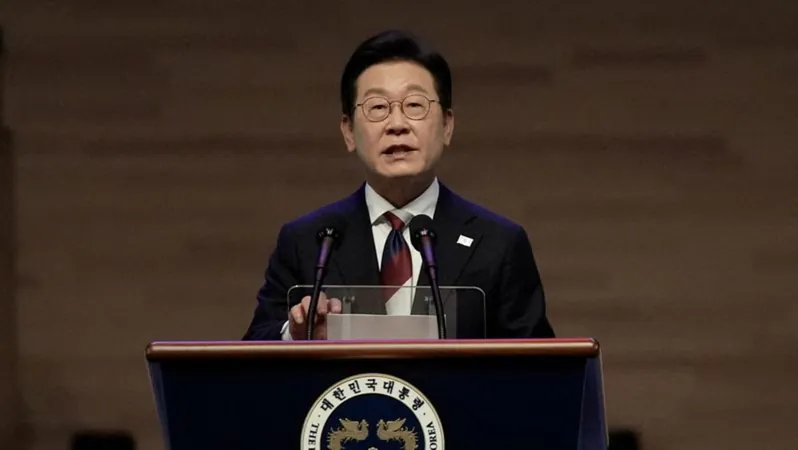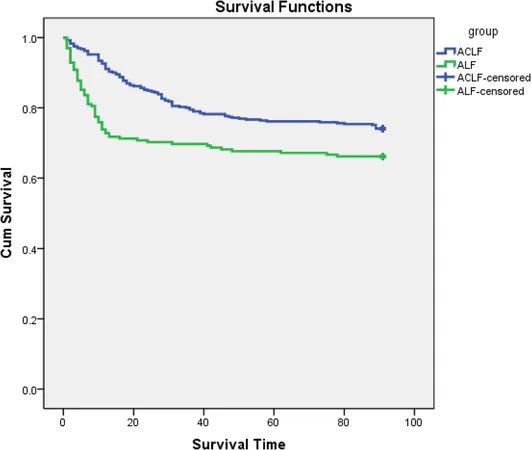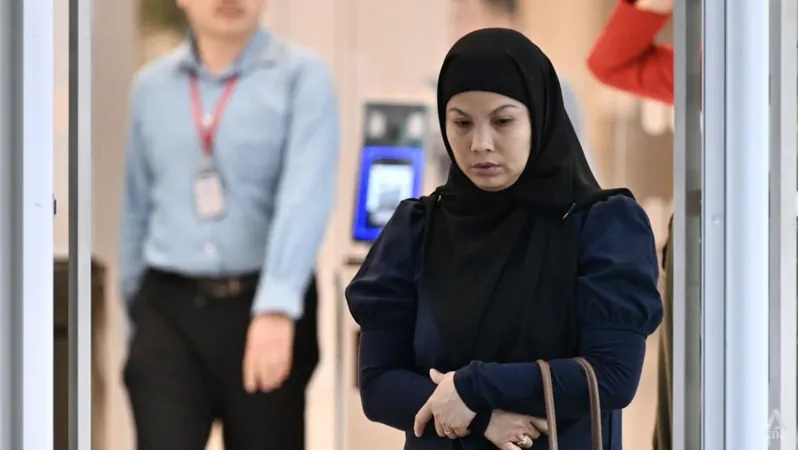
Will South Korea's New President Lee Win Over Trump in Their First Summit?
2025-08-25
Author: John Tan
In a crucial moment for international diplomacy, South Korea's new president, Lee Jae-myung, is set to meet with U.S. President Donald Trump in Washington on August 25. This summit comes at a time when the historically strong alliance between the two nations faces significant challenges amid shifting geopolitical landscapes.
Taking office just two months prior, Lee succeeded his conservative predecessor, who was praised in Washington for his tough stance on North Korea but removed from office due to attempts to impose martial law. With the South Korean economy heavily dependent on the U.S., Lee is aiming to navigate the complex waters of U.S.-China relations while ensuring South Korea's security.
As Trump has openly criticized South Korea in the past, referring to it as a "money machine" profiting from American military presence, Lee's strategy is to project a friendly rapport while steering clear of potential pitfalls during their discussions.
High Stakes for Both Leaders
Analysts suggest that a low-drama summit might be in Lee's best interest. "For Lee, a no-news summit would likely be seen as a win," noted Victor Cha from the Center for Strategic and International Studies. Yet, the unpredictability of Trump's agenda creates an air of tension surrounding the meeting.
In the lead-up to the summit, South Korean negotiators worked diligently to finalize trade agreements, dodging severe tariffs but still facing the challenge of billions in promised U.S. investments. Their hope is that contentious trade discussions remain off the table during this high-profile meeting.
Lee's Agenda: Investments and Military Spending
Upon arriving in Washington, Lee will emphasize South Korea's investments, including a visit to a Philadelphia shipyard owned by Hanwha Group—part of efforts to boost the struggling U.S. shipbuilding sector.
Trump is likely to pressure Lee for increased South Korean defense spending, given the presence of 28,500 U.S. troops in the country. Lee's security adviser, Wi Sung-lac, indicated ongoing discussions about aligning South Korea's defense expenditures with NATO standards and the potential purchase of U.S. weaponry.
Focus on North Korea and Regional Cooperation
Another pivotal topic could involve re-engaging North Korea about its nuclear ambitions. While both leaders agree on a phased approach to denuclearization, North Korea has repeatedly dismissed overtures from both Washington and Seoul, asserting that it will not relinquish its nuclear arsenal.
In a bid to bolster trilateral cooperation, Lee first met with Japanese Prime Minister Shigeru Ishiba, emphasizing the need for unity between South Korea, Japan, and the U.S. Ahead of his vital encounter with Trump, this dialogue is expected to inform Lee's strategy.
As President Lee steps onto the global stage, all eyes are on this summit that could redefine alliances, adjust defense tactics, and reshape regional dynamics in an increasingly complicated geopolitical era.




 Brasil (PT)
Brasil (PT)
 Canada (EN)
Canada (EN)
 Chile (ES)
Chile (ES)
 Česko (CS)
Česko (CS)
 대한민국 (KO)
대한민국 (KO)
 España (ES)
España (ES)
 France (FR)
France (FR)
 Hong Kong (EN)
Hong Kong (EN)
 Italia (IT)
Italia (IT)
 日本 (JA)
日本 (JA)
 Magyarország (HU)
Magyarország (HU)
 Norge (NO)
Norge (NO)
 Polska (PL)
Polska (PL)
 Schweiz (DE)
Schweiz (DE)
 Singapore (EN)
Singapore (EN)
 Sverige (SV)
Sverige (SV)
 Suomi (FI)
Suomi (FI)
 Türkiye (TR)
Türkiye (TR)
 الإمارات العربية المتحدة (AR)
الإمارات العربية المتحدة (AR)